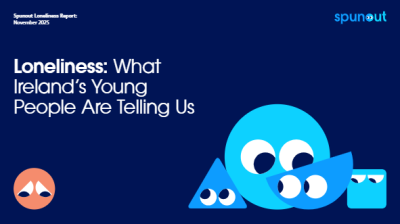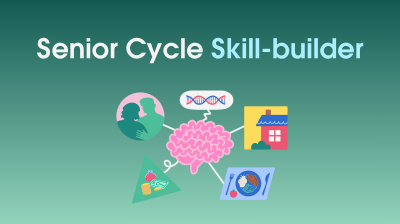What the Programme for Government means for young people
The deal negotiated between Fine Gael, Fianna Fáil, and The Green Party outlines their plans if they were to form a Government

Over the last number of months, Fine Gael, Fianna Fáil, and the Green Party have been negotiating a Programme for Government (PfG). This is a document that outlines their plans and policies over the next five years if they were to go into Government together. Learn more about what the Programme for Government is and how the coalition Government would work.
The document includes policies for areas such as healthcare, the economy, transport, climate change, housing, immigration, education, and more. Many of the plans outlined in the document affect the lives of young people in Ireland. Below, we have outlined some of the key areas that we feel are of interest to young people from the document.
The Programme for Government and Young People
The areas of the Programme for Government that affect young people in Ireland include education, health, families, and minorities.
The points below have been pulled from a much longer list of policies and proposals in each area. These are just the points we feel are most relevant to young people aged 16-25. To read all policies, you can access the full document, or view this longer summary by the Children’s Rights Alliance.
Click here to jump to a section:
- Mental health and young people
- Young people in rural Ireland
- Improving education for young people
- Young people in Direct Provision
- LGBTI+ young people
- Youth participation in society
- Young people in minority groups
- Other areas affecting young people
Mental health and young people
Some of the suggested changes to the way mental health care is provided to young people in Ireland, including:
- Ending children and young people under 18 going into adult psychiatric units by increasing the number of in-patient beds and looking at the system used to assign beds to people
- Complete the update of the 2001 Mental Health Act, to give young people aged 16-17 the right to consent to treatment for their mental health
- Improve communication between the different departments a young person may be working with during treatment by putting in place the Pathfinder inter-departmental unit on youth mental health
These are just a handful of the proposals on Mental Health. You can view the full list in the PfG document.
Young people in rural Ireland
The PfG hopes to improve opportunities for young people in rural Ireland by
- Establishing a Rural Youth Assembly as part of the National Youth Assembly, giving young people in rural areas the chance to identify and influence policy issues that impact on them
- Seeking to increase funding to the national network of Comhairle na nÓg (the Youth Council)
- Establish a national network of Teen Sheds to tackle isolation, similar to the Mens’ Sheds programme
- Support the Young Social Innovators programme to assist young people in responding to the issues their communities are facing after COVID-19
These are just a handful of the proposals on rural Ireland. You can view the full list in the PfG document linked at the end of this article.
Improving education for young people
The PfG outlines a number of areas where the Government will hope to improve the standard of education for young people in Ireland. This includes:
- Review and reform the secondary school curriculum to put more of an emphasis on critical thinking, problem-solving and continuous assessment
- Developing the Relationships and Sex Education (RSE) and SPHE programmes with more inclusive content for LGBTI+ students
- Improve support for students who are homeless, in emergency accommodation, or in Direct Provision
- Develop access programmes to Higher and Further Education for disadvantaged groups, such as the Traveller Community or those in Direct Provision
- Improve access to teaching for people from minority backgrounds
- Make sure children with special needs have an appropriate school place
- Update the National Anti-Bullying Plan to include gender identity bullying
- Review and reform how the Irish language is taught in schools with an emphasis on spoken Irish
These are just a handful of the proposals on Education. You can view the full list in the PfG document linked at the end of this article.
Young people in Direct Provision
This PfG states that this Government would be committed to ending Direct Provision and replacing it with a new “International Protection accommodation policy centred on a not-for-profit approach”. This would be welcome news to those who have been campaigning to end Direct Provision.
As part of this process, a White Paper (Government report) would be published by the end of 2020, based on recommendations from an Expert Group, outlining how this new system would be structured and what steps need to be taken to achieve it.
In the short term, steps would be taken to improve the living conditions for asylum seekers currently in the Direct Provision system. These improvements would include:
- The right to work
- Ability to apply for a drivers’ licence
- Ability to apply for a bank account
- Reducing the length of time that it takes to make a decision on someone’s asylum application
- Providing mental health services
- Training the managers of Direct Provision Centres
The Government will also seek to create new models for engaging communities when new accommodation is provided to asylum seekers to make them feel welcome and included.
These are just a handful of the proposals on Direct Provision. You can view the full list in the PfG document linked at the end of this article.
LGBTI+ young people
Plans to improve services for LGBTI+ young people include:
- Creating a more safe, supportive and inclusive Ireland by implementing the National LGBTI+ and the LGBTI+ Youth Strategy
- Create laws to ban conversion therapy (a dangerous practice that tries to force LGBTI+ people to change their sexual orientation or gender identity – something which is not possible)
- Create and implement a general health policy for Trans people, based on best practice
- Deliver a framework for the development of National Gender Clinics and Multidisciplinary Teams for children and adults to support Trans people in all of the different services they interact with
The PfG also outlines improvements to the gender recognition process including removing the need for a person aged 16 and 17 years to have two specialist reports before they can apply for legal gender recognition. Instead, they can provide a self-declaration with parental consent. Mediation (bringing another person into the process) will be voluntary.
These improvements will also include:
- Provision of a gender recognition certificate providing proof of change of name as well as gender
- Making the necessary changes to the law to allow legally changing your name to be part of the gender recognition process
These are just a handful of the proposals on LGBTI+ issues. You can view the full list in the PfG document linked at the end of this article.
Youth participation in society
The PfG suggests a number of steps to improve the participation of young people in the political process and as members of society. These include:
- Develop a new National Strategy on Children and Young people’s Participation in Decision-making 2021-2025
- Carry out a national consultation with young people to ask how their voices can be heard and the issues they want their Government to focus on for their future
- Establish a Youth Assembly to consider issues that are important to young people, including climate change, social media, and mental health and wellbeing. This would include modules for both rural and urban young people.
- Increase funding to political parties to support youth, gender and diversity programmes
These are just a handful of the proposals on youth participation. You can view the full list in the PfG document linked at the end of this article.
Young people in minority groups
For young people in minority groups such as the Traveller or Roma community, or young migrants, the PfG has proposed changes such as:
- Putting in place a National Traveller Health Action Plan
- Carrying out an assessment of the projects aimed at keeping Traveller and Roma children in education
- Publish a new national action plan against racism
- Develop and put in place a new Migrant Integration Strategy
- Creating new pathways for long-term undocumented people and their dependents to establish on an official basis their status within 18 months of the formation of the Government (bearing in mind European Union and Common Travel Area commitments)
These are just a handful of the proposals on minority groups. You can view the full list in the PfG document linked at the end of this article.
Other areas affecting young people
The document has many more policies and proposals that would impact on the lives of children and young people in Ireland. Some other points worth noting include:
- Develop a National Youth Homelessness Strategy
- Examine increasing the age limit for the application of the Garda Youth Diversion Programme from 18 (currently) to 24 years old
- Complete the establishment of the Progressing Disability Services for Children and Young People (0- 18 years) Network Teams to improve the ways young people with disabilities access and receive health services.
Read the full Programme for Government here. Read a longer summary of the areas that affect children and young people in this Children’s Rights Alliance document.






